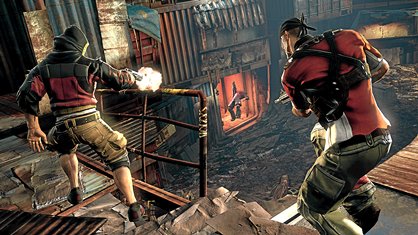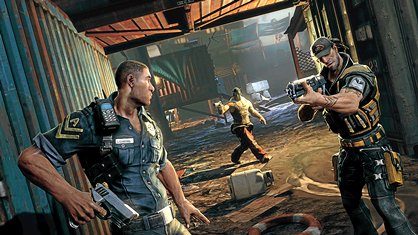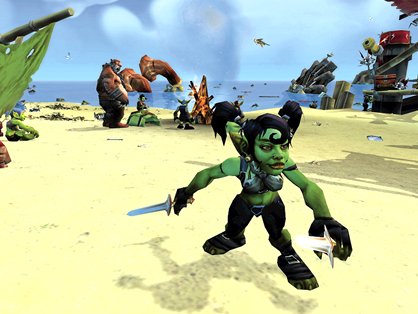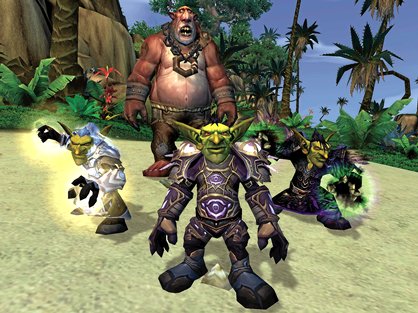2010's most promising PC games
A new decade of PC gaming is upon us, and it begins with a powerful roster
Expected: Sep 7
The creators of Enemy Territory blur the lines between single- and multiplayer. It’s probably easiest to think of Brink as an objective-based multiplayer FPS, with a story, cutscenes, and bots to replace players when you prefer. Security and Resistance are fighting for control of a run-down city floating on the sea. Whichever side you pick, you can either play the missions in story order or just choose one you fancy. Some crop up in both factions’ campaigns with different briefings. Security thinks they’re escorting a bomb defusal robot, the Resistance thinks they’re defending medical supplies. Neither, a cutscene at the end suggests, is quite right.

Along the way, you unlock access to new weapons, weapon mods, clothing, abilities and even body shapes. How many hitpoints you have or which weapons you can use is determined by your choice of body: light, medium or heavy. Heavy players can use all weapons, even if they’re playing as, say, a medic. Light have much less health, but can make better use of the game’s SMART movement system: holding a key as you run to automatically leap gaps and clamber obstacles (in other words, a fancy-pants way of saying "parkour").

So what’s class good for? If you’re a soldier, the game might offer you 300XP to plant a charge on that door ahead to clear the way for your team. If you’re a Medic, 100XP to boost that soldier’s health, or revive him. If you’re an Engineer, and there’s nothing in need of repair, it might bribe you 50XP to switch to Soldier. The idea is that if everyone takes the job that offers the most XP, the whole team will work intelligently together whether they’re using voice comms or not.
World of Warcraft: Cataclysm
Expected: Late 2010
Rebuilding a world, one dragon at a time. Thanks to Cataclysm, the third World of Warcraft expansion, Azeroth is changing. For better and for worse. Worse, because the constant peril that the harangued citizens and heroes of WoW face will escalate. Deathwing, an armour-plated dragon, tortured for millennia by demented dwarves, is about to burst out of the ground, uprooting and demolishing entire zones in the process.

Better, because the eruption gives Blizzard an opportunity to reshape and reforge the tenets of World of Warcraft, from the structure of the quests and the route to level 85, to the very cities and towns WoW players live in. Lava spikes and tectonic rifts will rework much of the antiquated, unused geography in interesting ways. Desolate, barren landscapes like, um, Desolace and The Barrens, are to be torn apart or fertilised – becoming pleasant places to visit and quest, rather than decrepit stops to grind through on the path to level 85.
Sign up to the GamesRadar+ Newsletter
Weekly digests, tales from the communities you love, and more
Systemic changes underline Blizzard’s ambition. Battleground players will be rewarded with the chance to play rated matches. Guilds will be asked to become tighter knit, with a guild leveling system and personalised guild abilities. A new ‘mastery’ endgame mechanic will provide regular progression for even top-end players.

Why? Because World of Warcraft is showing its age. The early areas are dreary, repetitive and cliched. Blizzard are introducing two new races come Cataclysm: the miserly Goblins join the Horde, while the Worgen, feisty werewolves, give the Alliance furry appeal. New races mean a new slog to the top-end – forcing players to grind through the opening areas would be a sin. Now, the WoW faithful just have to settle in for the long, tortuous wait.
Jan 22, 2010


Kiss your free time (and your money) goodbye as we count down the year's biggest titles

Like a necrophilia joke at a funeral, these games are cursed by poor targeting and worse timing

Experts talk motion-control, triple-A game downloads, and more


